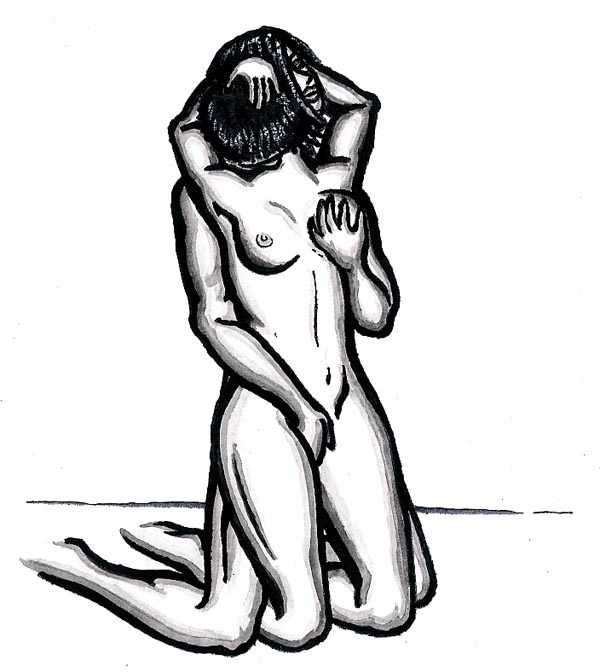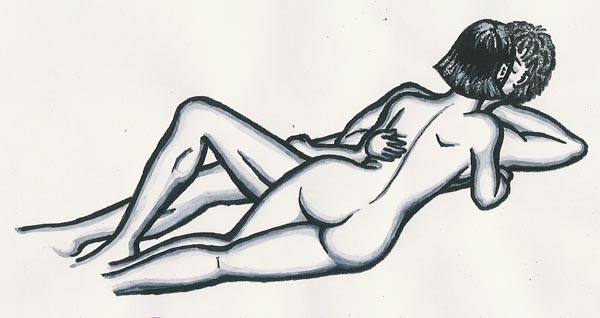|
|||||||||||||
|
a Philosophy that Deserves Both Words Creating a World By Punkerslut
Explanation of the Idea of Free Love and Polyamory
It is natural to want and to hope. It is normal to have desires and impulses, and where you are responsible, they can be a great source of joy. Our decisions and actions are shaped largely by our society. We are inspired culturally, through art or music. We are capable of love and compassion through our connection with others. The behavior we choose, then, when responding to our want, is usually a social choice. It involves how we think about others, as well as how we imagine them thinking about us. But one of our social instincts isn't allowed to be as free and open as it should be: the sex impulse. What is Free Love? The idea is a combination of the two words in its name. Our love for others should be made freely, based on our mutual sympathy and attraction. It shouldn't be based on cultural or social standards, but on individuals uniting with each other based on how they feel. We should make relationships with others according to our desires and needs. We shouldn't form relationships on how we're told to interpret our wants, because we are the one who will lose out on the experience. And, by making connections with others on a voluntary basis, one might find multiple partners. Today, Free Love is also known by the word Polyamory. Tradition and Morality in the Bedroom
The Free Lover does not necessarily restrict themselves to just one lover. Each person following this path has a responsibility not to deceive or conceal from others how they view the social relationship. It is not simply that we want people to respect each other and understand their own weaknesses. Most importantly, we feel that there is nothing wrong with our lifestyle; there is nothing shameful about it. Tradition would have us believe that being sexually free is a sign of having no virtue -- a mark of being mean and without real heart. But as Free Lovers, we believe that morality is about treating people well and respecting their sensitivities and their passions. Real goodness comes in being fair and seeking social justice, in helping the oppressed and helping to emancipate the exploited. Real ethics consists of causing no suffering to others, and turning your sympathy into meaningful actions. A person is neither good nor bad for their sex life, no matter how "perverted" it is in the doctrine of tradition. We should make it our mission and goal to improve the lives of all people and to seek justice for everyone. What we voluntarily decide to do with our sexual organs is not a moral decision. It is a personal choice.
How Human Nature Responds to Monogamy and Free Love
Free Lovers may have only one or two partners for years, or they may have a group of partners that grows or shrinks every month. This open and free concept of social relationships is made to fit our human needs. It was designed with the thought that every individual has their own individual tastes -- their own particular needs, their own passions, and there own attractions. The technical form of the relationships, of how many partners or on how new partners are chosen, is left up to the individual Free Lover. It is a form of socializing that can expand or contract to fit the needs of the person. Monogamy does not give us this liberty. Marriage and the principle of one-partner-relationships is a restrictive form of society. You can only be sexually active with your one partner, and you are prohibited from exploring your sexual side with anyone else. This means that your ability to be a full sexual being is limited by the decisions and needs of your partner. How often you both desire the sex act is likely to be different. And, the position and the style of the act is, similarly, a compromise between the two lovers. It is not likely that both will be completely satisfied in their sexual needs for the entirety of their relationship. The idea of Free Love allows us to have many partners. There are more sources of friendship and emotional communication. An individual is more likely to find someone to help them satisfy their needs -- whether they are social, personal, or sexual. It is rare that we can find one single person who is capable of fully and absolutely satisfying every impulse and desire we have. We each see many types of beauty, and it is difficult for one single individual to possess them all. By opening and freeing us in our relationships, Free Love gives us the potential of better satisfying our personal needs. A Society Based on Its People's Needs
The undefined form of the social relationship lets its participants choose how they want to interact. This is the essence of Free Love -- the principle of Polyamory. Monogamy would ask us to have one partner to satisfy all of our wants. But humans are not built like this. It is more likely that we'll want to satisfy different aspects of our social needs with different people. One person is a friend, another a lover, another is a casual acquaintance, and yet another is a casual acquaintance that we're sexually active with. What we decide to do with someone else is a decision up to us and that person, concerning nobody but us. It is a natural, organic way of creating our personal society. In the monogamous relationship, you become dependent upon one person as the primary source of your needs, both emotional and sexual. It creates a situation where you'll need to submit, and let your passions go without being stirred. Around 50% of people in marriages cheat on their spouse and violate this principle of tradition. [*1] The amount of marriages that end in divorce has reached 40% in the United States. [*2] The reason for these failures is not the people -- it is not necessarily about people lacking virtue or morality. It is about humanity being led by ideas that don't understand our nature; it is about how the traditional mode of looking at society doesn't fit our personal needs, how it is incapable of really making us happy. This is why Free Love is such a great advantage to our human civilization. It is made to expand or contract according to the tastes and preferences of the individual. Punkerslut, Resources *1. Atwood, J. D., & Schwartz, L., 2002, Journal of Couple & Relationship Therapy.
|




